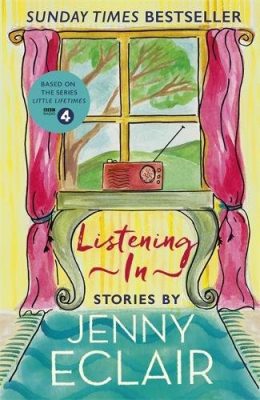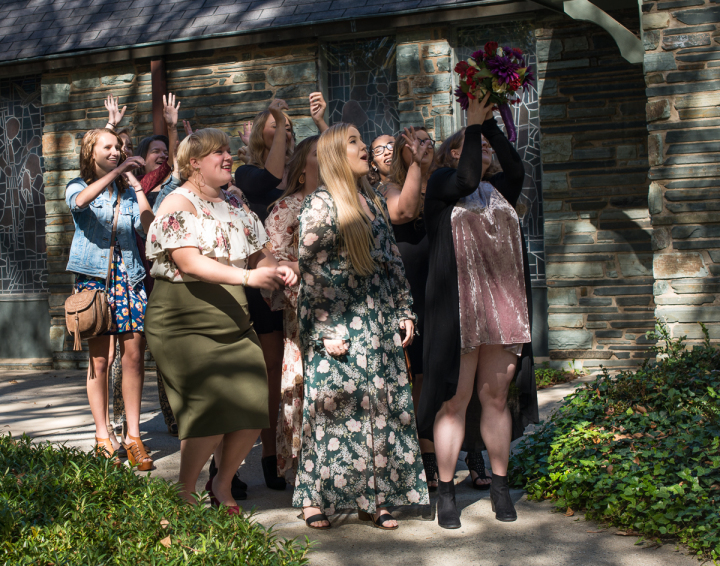Do nothing from selfish ambition or conceit, but in humility regard others as better than yourselves. Let each of you look not to your own interests, but to the interests of others. Let the same mind be in you that was in Christ Jesus, who, though he was in the form of God, did not regard equality with God as something to be exploited, but emptied himself, taking the form of a slave, being born in human likeness. And being found in human form, he humbled himself and became obedient to the point of death—even death on a cross.
— Philippians 2:3-8 (NRSV)
Welcome once again to my Focus of the Week series. These are posts where I select an area of spirituality to focus on for the week. In each article I discuss why it’s important and how our thinking might need to change. At the end I give practical application steps that we can use to grow spiritually in this area of our lives. These are actions I myself will follow during the week, and I encourage you to follow along as well.

If you want to learn more about Richard Beck’s book The Slavery of Death, click here to read about it on his blog Experimental Theology.
Skip to Applications
Okay, so this article will be big, in more ways than one.
I meant to write an article on Saturday to wrap up the week with some conclusions after following the application steps I had outlined for the week. In its stead, here’s a couple thoughts. In general, I felt like I personally didn’t make much progress. In my last Focus of the Week article I stated “we cannot sustain the Fruit of the Spirit in our lives by working at it.” Yet, in trying to show my commitment of love to others, I ended up working on love. I think it’s because I really don’t know much of an alternative. If we don’t work on being better at something, doesn’t that mean that our only alternative is to sit on our hands and wait for the change to merely happen to us? I have a feeling that what we ought to do is focus on our spiritual disciplines—Bible reading, prayer, and church attendance, according how my Church of Christ upbringing trained me. I’ll add a couple new ones later on this article. By focusing on our spiritual disciplines, that allows us to rely on God and leave room for the Holy Spirit to work on us instead.
So why didn’t my applications seem to work for me last week? I admit, it’s because I didn’t often feel like demonstrating my commitment of love to others. I ended up just creating to-do lists of good, helpful tasks. Not the transformation I aimed for. Isn’t this the pattern we always run into? We aim to improve our spiritual lives, and we run into the same problem every time: ourselves. Therefore, if we want to be able to grow spiritually, we have to overcome our selfishness. We’re human, so we can’t get rid of our selfishness, but we can work so that our selfishness controls our lives less and less.
But how do we do that? I believe Richard Beck, a psychology professor at Abilene Christian University, may have an answer in his book, The Slavery of Death. Yes, I shamelessly borrowed the title. In fact, the whole rest of this article, including the applications, will basically be a summary of the book, so if you like these thoughts, go order the book and read it!
Most of us know that sin leads to spiritual death (Romans 6:23), but Richard Beck points out that death, specifically our fear of death, also lead to sin. This relatively unexplored point in Western Christianity is actually an important part of Eastern Orthodox Christian theology. Sin and death have a sort of destructive cyclical relationship with each other, and together with the devil, form a sort of unholy trinity. The rest of the book goes on to explain why the fear death causes us to sin.
The Fear of Death Causes AnxietyOur fear of death causes us to be anxious for our own survival, and it can cause us to be desperate. When threatened with a life or death situation, we are often in a such desperate state of mind that we will steal or even kill if needed to preserve our own life. This kind of anxiety is called basic anxiety or survival anxiety, and it’s easy to see how this anxiety could play out in poorer societies, causing people to sin. Other people can often be seen as threats to our own survival, making it difficult to truly love someone. It’s one of the reasons why it can be hard to love a burglar who intends to kill you and your family. You just want to get them to leave house in whatever way possible.
However, most of our worries in the United States aren’t worries about survival, right? Instead, we are anxious about preserving our reputation, our way of life, and our identity. This kind of anxiety is neurotic anxiety, and it plays out in many invisible ways. What does death have to do with neurotic anxiety? Death shows us that we’re weak, that we’re temporary, and that our lives on Earth have no real significance. This truth is absolutely debilitating, especially for someone who doesn’t believe in a resurrection after death. Human beings look for something to make their life meaningful and significant, and we become slaves to the fear of death. Here’s what Beck says on the subject:
In affluent societies where self-preservation is not a pressing concern, we begin to worry about living a meaningful and significant life in the face of death. More specifically, in American society this anxiety tends to manifest in the American success ethos. That is, while we might not fear death on a day-to-day basis, we do fear being a failure in the eyes of others (or ourselves). But failure here is simply a neurotic manifestation of death anxiety, the fear that at the moment of death we won’t have accomplished enough to have made a permanent and lasting difference in the world.
The most common route toward making such a difference is to become beholden to the principalities and powers [nations, governments, institutions, companies, organizations, ideologies, communities, church congregations, etc.]. We receive affirmation from these powers. For most of us this affirmation involves the praise and successes that we experience in our workplaces, though we should also consider other forms like national pride and flag-waving patriotism. This affirmation is a ready-made route to daily self-esteem, significance, the feeling that we “matter.” In addition, as superhuman entities, the powers seem more durable and immune to the ravages of death—immortal even.
— The Slavery of Death, page 60.
I hope that you can see how this neurotic anxiety plays out in your own life. In my life, it especially plays out in my perfectionism. In general, I consider myself (probably too harshly) to be a bit of a social outcast, an intelligent nerd without many friends or social skills. Therefore, in order to become accepted by people and prove my own worth and significance, I often work hard to make superior products, whether they’re homework projects, essays, music compositions and performances, or even blog articles (haha). I do this in hope that someone might believe that I have value, and this just launches me into a self-esteem cycle that God doesn’t desire me, or any of us, to experience.
Presenting a positive image of myself takes tremendous effort, and this means that I have less energy and time to love others. So, if we want to be able to love others, we need to learn how to not be anxious about ourselves, as Jesus states in the Sermon on the Mount when he tells us, “do not worry” (Matthew 6:25-34). But how do we stop worrying? That’s the question we continue to ask. Beck summarizes the points above, and suggests a solution:
A New IdentityLove is possible only when we’ve been set free from our slavery to the fear of death. Love necessarily involves mastering anxieties that are natural to biological creatures such as ourselves, because while these anxieties signal the goodness and preciousness of life, when left unchecked they produce a variety of sinful outcomes. If expressed directly, these survival anxieties can reduce human existence to a Hobbesian and Darwinian struggle, a perpetual state of anxiety, vigilance, suspicion, paranoia, rivalry, envy, competition, and aggression toward others. On the other hand, if sublimated [or channeled in a more acceptable outlet], these anxieties produce a neurotic death avoidance that drives the quest for significance, meaning, and self-esteem. This quest, fueled by an underlying anxiety, produces similar forms of rivalry, competition, and aggression as we compete with others for attention, respect, and significance. Our neurotic fear of failure creates an inauthentic and appearance-obsessed social world, and our pursuit of self-esteem and significance typically leads us to serve (and seek the adulation of) the institutions around us—the principalities and powers. But upon inspection, and particularly when the powers treat us as disposable, we come to see that our survival fears contaminate any significance we gain from the powers, as well as our identities. . . . Love becomes compromised in the face of these fears.
To be set free from these dynamics—to be liberated from slavery to the fear of death—we need to create a new sort of identity. This new identity is an eccentric identity, one received as gift rather than owned as a possession. Such an identity allows us to engage in acts of kenosis—letting go of the self in order to expend ourselves (even to the point of detah) on behalf of others. Not needing to own, protect, or defend the self frees us to donate ourselves in love.
— The Slavery of Death, pages 91-92.
So, the solution is to create a new identity, a new identity that’s received as a gift. As you can guess, the solution is to have an identity as a child of God that has been granted to us. This all sounds nice until you realize the ramifications. If your identity is in God, and your identity is a gift, that means that you do not possess your identity. This means, as Christians, we have no control over who we are. As Paul learned well, God is the one who defines us, and we are merely clay for God to form our identities out of. However, this is a good thing. If God possesses our identity, that means that it cannot be destroyed, tainted, or diminished. Nothing, not even death can destroy our identity because through the waters of baptism we have received a new, eternal identity that cannot be destroyed. As Beck illustrates by discussing Philippians 2:3-8, we can see how Jesus lived as someone whose identity was in God:
Doxological GratitudeAs a remedy Paul [helps] the Philippians see how Jesus did not operate out of an identity rooted in grasping, owning, and possessing. Because Jesus did not have to anxiously defend against the claims or encroachments of others, he was able to truly let go and love. He could empty himself (kenosis) for the sake of others. And because Jesus did not fear dispossession or loss, he could endure the social and cultural stigma of being “nothing.” . . . To use terms from the American success ethos, Jesus did not fear looking like a failure or a loser—he did not worry about humiliation. Jesus was free from every form of death anxiety, both basic and neurotic. . . . Consequently, Paul asks his readers to adopt this same eccentric identity—to have the “same mindset as Christ Jesus”—so that they too will be able to “look to the interests of others.” . . . The courage and capacity that makes kenosis possible—the inoculation of the ego that is required to endure shame, loss, perceived failure, and all other forms of “emptying”—is the foundational conviction that we count and matter, that we are the beloved children of God. Only when the ego has been stabilized in this manner can we turn toward others with relaxed, non-grasping, and other-oriented love.
— The Slavery of Death, page 75.
Hooray! We’re now free to go out loving people. Let’s go out and live happily ever after, everyone!
Unfortunately, if we started to just try to love people after knowing this realization that we don’t have to protect our identity, we’d quickly encounter struggles. That’s because our psyche doesn’t suddenly switch from bad mental habits to good ones. We need some practices to help us develop this new, much more healthy way of thinking.
One critical shift is that we must realize, along with all our other blessings, that our identity is a gift. Because of this, Beck encourages the combined use of two well-known practices, gratitude and worship, which he calls doxological gratitude. However, there’s a twist. The gratitude that Beck is talking about goes beyond material blessings, but it also extends to thanking God for our identities, confessing that we don’t believe that we have created our current identity, and letting go of all control over how our identity is defined. Therefore, we express our gratitude to God and worship Him, because He is the one that makes all good things possible in our lives. We would have no worthy identity without Him. Here’s Beck’s commentary (last one, I promise!):
ApplicationsWe tend to restrict gratitude to material blessings, but this restriction doesn’t allow gratitude to infuse our self-concept and identity. We know what it feels like to be grateful for our house and income, but we don’t tend to feel grateful for our reputation or for being perceived as witty, talented, or cool. We feel gratitude for stuff, but rarely for the self. . . . Are we willing to hold our self-esteem as lightly? Or is the self a possession that must be protected? If we are willing to give material possessions away, are we also willing to let go of everything that makes us feel significant and worthy? Are we willing, in the words of Paul, to appear to be a “fool,” perceived as “out of our mind” in the eyes of friends, family, coworkers, and the culture?
And this is why gratitude must be doxological in nature, an act of worship that exposes the self-esteem project as idolatry, as a route toward self-glorification or as service to the principalities and powers. In this, doxological gratitude has a prophetic edge, calling into question and dismantling the death-driven ways our culture pursues meaning, significance, value, and self-esteem. . . . Where gratitude combats the basic anxieties associated with the loss of resources, worship combats the neurotic anxieties associated with appearing “successful” in society’s eyes.
— The Slavery of Death, pages 101-102.
So here’s the steps I will be going through each day this week:
1. Offer Gratitude For Material BlessingsI know I’ve made a focus of extending gratitude beyond material blessings, but expressing gratitude for material blessings is still important, and it’s still neglected by most Christians, including myself. The more we can realize the fact that God gives us everything in our lives, the more our lives will be filled with thankfulness and joy for the love that God has shown us. However, it’s important to also confess that these blessings are gifts, not possessions. I’d like to even steer away from the idea that we’re tenants or stewards of these blessings, because that distinction isn’t distinct enough. If we’re renting a house, it’s easy to forget we don’t own the house. Instead, I like the idea that we’re merely borrowers, and we know that God will ask for His blessings back so that He can allow others to enjoy the blessings in the future.
I’m going to pick at least one material blessing per day, and I’ll say a prayer that will be something like this:
“I thank you God for _______. I know that you have lent this blessing to me as a precious gift. Help me to use this blessing in a way that will glorify your Name, and give me the courage to not withhold this gift from you when it can serve others better in the future.”
2. Offer Gratitude For Relational BlessingsCommunity is an enormous blessing. In isolation, if no longer living our lives enslaved to the fear of death, we would eventually expend ourselves out of love of others to the point of death. In community, our love extends both ways so that we renew others, and we are in turn renewed by them. We ought to thank God for the people in our lives as well. I’ll say a prayer that will be something like this:
“I thank you God for _______. Their gift of love to me is precious to me. Free me from my worries of self-preservation so that I may love them back without reservation. Help me to be committed to them in love, and help me to be willing to let go of them when it is time for them to no longer be part of my life.”
3. Offer Gratitude For My IdentityHere’s my prayer for this part:
“I thank you God that you have created me the way I am, with my gifts [name some if you can] and with my flaws [also name some]. Help me to accept that my identity is now Yours and that if I try to control or worry about the appearance of my identity, then I turn myself into an idol, and I show that I am lacking in faith. I know that my identity is secure in You. I thank you Lord that I no longer possess my identity.”
4. Pray For Those You FearWe all know Jesus’ command to pray for our enemies. One of the goals of this week’s topic is to get rid of reasons to fear. We won’t ever get rid of fear. That’s not the point, but by God’s power through the Resurrection we can have control over our fears so that we’re no longer enslaved to them. One way to do that is to pray for those who we fear. This would also include praying for those we disagree with because we often feel threatened by rival ideologies or points of view. It also includes praying for those who have hurt us, because we’re often afraid they’ll hurt us again. Don’t pray for them and secretly hope God will cause them to join your side or point of view or to stop threatening you. That’ll just cement your way of thinking further. Instead, pray that their lives may be blessed as much or more than yours, even if they don’t change their minds or actions. It’s much better for God to take control and choose the outcome of their lives than for us to seize control of the situation and try to change the circumstances to fit what’s comfortable for us.
5. Find a Time to Sing to GodThis is an unexpected suggestion I picked up from Richard Beck’s book as well. Take a look at Ephesians 5:18b-20 to see how singing is supposed to be part of the Christian life. Also, remember Paul and Silas’ being put in prison in Philippi in Acts 16? How did they react? They prayed and sang hymns to God. Singing is a way of expressing gratitude that involves our entire self: our body, our mind, our heart, and our soul. The only time I ever really sing is during church. I’ve never really sung to the radio or just hummed to myself as I go about my day. This will be a big shift for me because I’m not very comfortable singing around people, but we don’t have to worry what people think now, right? I may start with quietly singing in the shower or singing while in the car or walking to work.
6. (Update) Read from JonahI noticed that both this week and last week that my applications this week and last week were light on Scripture reading. I decided that I’d like to read Jonah. It contains only four chapters. Besides noticing how the book turns the typical “obedient prophet who speaks to his own hardened people” narrative on its head, notice how it also reflects the experience of a man who has difficulty loving his enemies. Read at least a chapter a day (on average, Jonah is one of the books of the Bible with the shortest chapters), and if you finish, read the book again. You might discover new things you didn’t realize the first time through reading it.
That’s all for this week. I think this is a hard-hitting post, but it’s an important one, and I hope it proves to be helpful and transformational in your life. I’ll see you next Sunday!
- More





